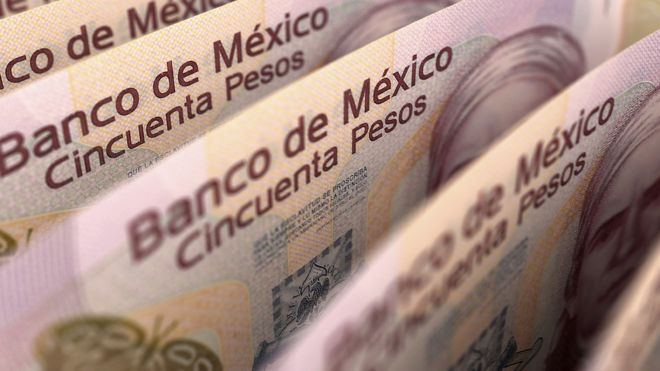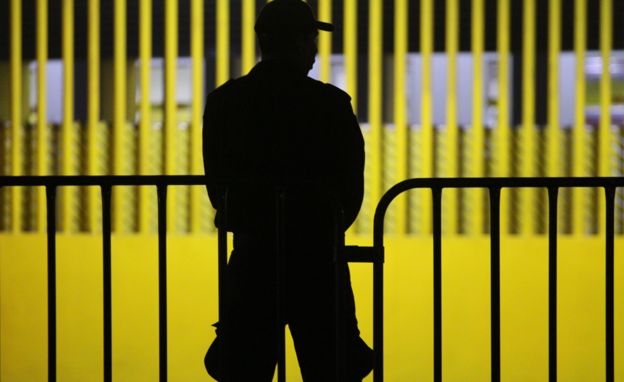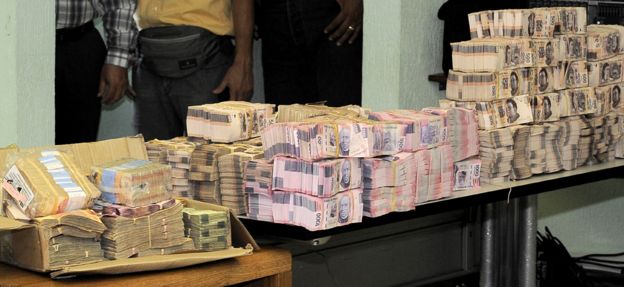- 29 March 2016
- Magazine
출처: http://www.bbc.com/news/magazine-35890965
When is a fine a bribe?
 iStock
iStockCorruption has become an unwelcome and unavoidable part of everyday life for many Mexicans - and as Katy Watson discovered, it's easy to be drawn into a world of bribes and backhanders without realising what's happening.
Not long ago, my partner and I drove to the south of Mexico City - he was behind the wheel, I was the map-reading passenger. Shortly after we began our journey, our sat-nav surprisingly told us to go down what we thought was a bus lane.
We'd been in Mexico City long enough to know the most vital traffic rule - never go into one of these lanes, no matter what! So we didn't. Instead, we just briefly, crossed over one. Admittedly we looked a little cautious, rather lost, but we thought we had avoided the problem.
We were wrong. Within seconds a patrol car was tailing us.
"Do you realise what you did? You travelled in a bus lane," said the policewoman who had drawn up beside us. "Hello," I replied. "I'm ever so sorry, we didn't actually go in it, we just crossed over it."
We were half expecting a nice friendly smile and something along the lines of, "Well don't do it again. Off you go." But instead we got, "That offence carries a fine of 2,800 pesos ($160; £110), please pull over on the next corner."
 Getty Images
Getty ImagesSo we did. And when we stopped, we were given two options - either our car would be impounded and we would pay the fine at the transport depot when we went to get it, or we could pay now and get on with our journey. Well the second option seemed pretty logical, no?
Of course then we realised we didn't have enough money on us. So the police offered to drive us to a cash machine. It was then I started feeling a bit suspicious. Police taking us to a hole in the wall? I'm sure this wouldn't happen back home. But it was the first time I'd been in trouble with the law here, and the truth is they did it so professionally it didn't even feel like a bribe.
The money withdrawn, my partner handed it over and asked for a receipt. "The machine is broken," they said. "Have we just paid a bribe?" we wondered.
"Your licence is clean sir," the policewoman said brightly to my partner after looking at her computer screen. How ironic we thought: "Clean licence. Dirty cop."
We did report this incident at the police station later on, but unsurprisingly they did very little.
Find out more
- From Our Own Correspondent has insight and analysis from BBC journalists, correspondents and writers from around the world
- Listen on iPlayer, get the podcast or listen on the BBC World Service or on Radio 4 on Saturdays at 11:30
The whole experience - as well as making me incandescent with rage - made me feel helpless. And it made me think about the powerlessness many Mexicans feel in far worse situations. This is a country where 98% of murders go unsolved - the culture of impunity is terrifying.
Corruption is a major threat to the functioning of this, the world's 15th largest economy. By some counts, it gobbles up a tenth of Mexico's GDP. A grim statistic? I could go on.
"We have a very, very low respect for the rule of law," says Maria Amparo Casar who works with an anti-corruption agency. "Corruption's widespread, not only in the public sector but in the private sector too and even among us ordinary citizens."
It's an issue that a group of intellectuals, academics and others have been trying to address in a campaign called "3 of 3". They want to change the law around corruption and make politicians more accountable, asking them to declare three things - their assets, their interests and their taxes. The campaign has been a success - they have collected 300,000 signatures which means the Senate is now obliged to debate their proposals.
 Getty Images
Getty ImagesThere are those who describe corruption as being part of the culture here. Donald Trump of course has weighed in saying Mexicans are corrupt. Even President Enrique Pena Nieto has remarked that corruption is a cultural matter. But this is something Enrique Cardenas Sanchez, who is also part of the 3 of 3 campaign, disagrees with.
"I don't think it's a cultural thing. There are millions of Mexicans who cross over the US border and they are not corrupt - because of institutions there, because of law enforcement and not having the chance to corrupt anybody," he tells me.
I went to meet Juan Pardinas, who heads the Mexican Institute for Competitiveness. As we chatted about Mexico's corruption problems, I compared them to Britain's parliamentary expenses scandal. "Yes," said Pardinas. "I followed that story and we Mexicans thought it was really sweet. I mean, a British politician claims for a satellite TV subscription in his house - come on - a Mexican politician would claim the whole house," he laughed.
But then he turned serious. "The big problems that Mexico has to face now - organised crime, violence, poverty, lack of economic growth - are directly linked to the inability of the state to punish the police force and politicians who have been corrupted by organised crime. If we don't face the problem of corruption, we won't be able to deal with all of Mexico's other problems."
'국제문제 > 남미' 카테고리의 다른 글
| (남미/브라질) 브라질 여대통령 루세프(Rousseff)의 탄핵이 합당하다는 의회의원회 의장 건의 (0) | 2016.04.07 |
|---|---|
| (남미/베네주엘라) 베네주엘라 의회 암네스티(사면) 법안 통과 (0) | 2016.04.01 |
| (남미/브라질) 브라질 전임 대통령 룰라 곤란한 처지의 현임 루세프 대통령 구원투수로 등장 (0) | 2016.03.30 |
| (남미/브라질) 브라질의 위기: 루세프 대통령을 하야시키는 것보다 더 큰 위협 (0) | 2016.03.22 |
| (남미/브라질) 브라질 예술가 황의표시로 도시의 조각상의 얼굴을 빨간 천으로 가리다 (0) | 2016.03.14 |